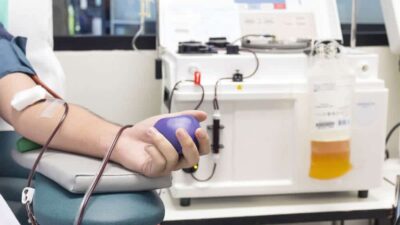
In the intricate web of modern healthcare, one of the most critical pillars supporting the entire system is the field of medicals. From the devices and diagnostic tools that provide essential data, to the pharmaceutical products that treat illnesses, to the professional practices that guide patient care, medicals encompass a broad spectrum of innovations and disciplines. Over the years, this field has not only expanded in its capabilities but has also transformed the way we approach health, wellness, and longevity. While healthcare as a whole has seen remarkable advancements, the term “medicals” has evolved beyond just medicine and pharmaceuticals to include everything that sustains and advances human health. But what exactly does it mean, and how does it affect the average person?
The Evolution of Medicals: From Ancient Remedies to Advanced Technologies
Historically, medicine began as a rudimentary practice based on trial and error, with early human societies relying on herbal remedies, religious practices, and traditional healing methods. As civilizations advanced, so too did their understanding of disease and the human body. The ancient Egyptians, Greeks, and Chinese made significant contributions to medical knowledge, many of which laid the groundwork for modern practices. The famed Hippocratic Oath, written in the 5th century BCE, still holds significance in medical ethics today.
However, the real revolution in medicals began in the 19th and 20th centuries with the advent of germ theory, the discovery of antibiotics, and the rise of modern surgical techniques. The discovery of penicillin by Alexander Fleming in 1928 marked a turning point in the treatment of bacterial infections, significantly increasing life expectancy. Simultaneously, advancements in medical technology—such as the stethoscope, X-ray, and electrocardiogram—revolutionized the way healthcare professionals assessed and diagnosed patients. The introduction of vaccines in the 20th century further amplified the progress, leading to the eradication or containment of deadly diseases like smallpox, polio, and measles.
Today, medicals continue to evolve at a rapid pace. The convergence of artificial intelligence, biotechnology, and personalized medicine is reshaping the landscape of healthcare. Techniques like genome editing, stem cell therapy, and immunotherapy offer promising treatments for previously untreatable conditions. Moreover, the emergence of telemedicine and wearable health technologies has made healthcare more accessible and personalized than ever before.
Pharmaceuticals: A Cornerstone of Medicals
At the heart of medicals lies pharmaceuticals. Medications play an essential role in managing, treating, and curing diseases, and they form the basis of much of what we understand as modern healthcare. Pharmaceutical drugs range from common over-the-counter pain relievers like ibuprofen to complex chemotherapy drugs that target cancer cells. These medications have saved countless lives, alleviated suffering, and improved the quality of life for millions.
One of the most fascinating aspects of the pharmaceutical industry is its constant push for innovation. The discovery of new drugs requires not only scientific expertise but also significant time and resources. The process is long and rigorous, often taking years or even decades to bring a drug from the lab to the pharmacy shelf. The stages of drug development—from preclinical testing to clinical trials—ensure that the medications we rely on are both safe and effective. However, as drug prices continue to rise, the question of affordability and accessibility remains an ongoing challenge, particularly for low-income populations and developing nations.
Moreover, the increasing use of personalized medicine—a field where treatments are tailored to an individual’s genetic makeup—has the potential to transform the pharmaceutical landscape. By focusing on the unique genetic factors that influence how a person responds to a drug, personalized medicine promises to optimize treatment outcomes while minimizing side effects. This personalized approach could represent the next frontier in medicine, paving the way for more effective therapies and a more targeted approach to disease management.
Medical Devices: The Unsung Heroes of Healthcare
While drugs often take the spotlight in discussions about healthcare, medical devices are just as indispensable. From diagnostic tools like MRI machines and blood glucose monitors, to life-saving devices like pacemakers and insulin pumps, medical devices are central to how healthcare is delivered. These devices assist doctors in diagnosing, monitoring, and treating a wide array of conditions, from chronic diseases like diabetes to acute conditions like heart attacks and strokes.
The development of medical devices has been equally revolutionary, with cutting-edge technologies now enabling real-time, non-invasive monitoring of patient vitals, more precise surgeries through robotic-assisted tools, and even remote care through telehealth platforms. Wearable devices, like smartwatches that track heart rate or blood oxygen levels, are empowering individuals to take charge of their own health, enabling early detection of issues before they escalate into more serious problems.
One particularly exciting area of growth within medical devices is the realm of implantable technologies. Cochlear implants have restored hearing to millions, while deep brain stimulation devices are improving the lives of individuals with Parkinson’s disease. The future promises even more breakthroughs, with the possibility of artificial organs, advanced prosthetics, and neuroprosthetics that could redefine the quality of life for individuals with disabilities or life-limiting conditions.
The Role of Healthcare Professionals: The Human Element in Medicals
While technology and pharmaceuticals continue to push the boundaries of what’s possible in healthcare, one aspect remains constant: the role of healthcare professionals. Doctors, nurses, pharmacists, therapists, and other healthcare providers are the linchpins of the medical system, bridging the gap between technology and human experience. Their expertise and compassion ensure that medical advancements are applied effectively and ethically, and their work extends far beyond the mere administration of treatments.
Healthcare professionals are also at the forefront of patient advocacy, offering not just clinical expertise but also emotional and psychological support during difficult health challenges. The relationship between a patient and their healthcare provider can significantly influence outcomes, with studies showing that strong doctor-patient communication often leads to better adherence to treatment plans and improved health results. In a world increasingly dominated by technology, it is the human touch—empathy, understanding, and personalized care—that remains one of the most important aspects of the medical field.
The Growing Role of Preventive Medicine
As medical science has advanced, the focus of healthcare has shifted from merely treating disease to preventing it in the first place. Preventive medicine aims to reduce the burden of disease by addressing risk factors and promoting healthy lifestyles. This can include everything from routine screenings for conditions like cancer or cardiovascular disease to initiatives encouraging exercise, healthy eating, and mental well-being.
The importance of preventive medicine cannot be overstated. Many chronic conditions, such as diabetes, heart disease, and obesity, are largely preventable through lifestyle changes. By focusing on prevention, healthcare systems can reduce the long-term costs associated with treating these conditions and improve the overall quality of life for individuals.
The Future of Medicals: Towards a More Holistic and Inclusive Approach
The future of medicals is both exciting and challenging. With the rapid pace of technological innovation, we are poised to see breakthroughs that were once considered science fiction. From AI-assisted diagnostics and robotic surgeries to the use of blockchain for medical record-keeping, the potential for medical advancements is boundless.
However, as we look to the future, it is equally important to consider how these innovations will be implemented. Healthcare must become more accessible and inclusive, addressing disparities in access to care, particularly in underprivileged and rural areas. Additionally, the focus should shift toward holistic care, integrating mental, emotional, and physical health in a way that recognizes the interconnectedness of the human body and mind.
Ultimately, medicals—whether through pharmaceuticals, medical devices, or the care provided by healthcare professionals—will continue to evolve. Yet, the guiding principle should always be to prioritize the health and well-being of individuals, fostering a system that not only treats disease but also enhances the quality of life for all. As we look ahead, we must embrace these advancements with a sense of responsibility, ensuring that the benefits of medical progress reach everyone, and that the human element remains at the heart of healthcare.










